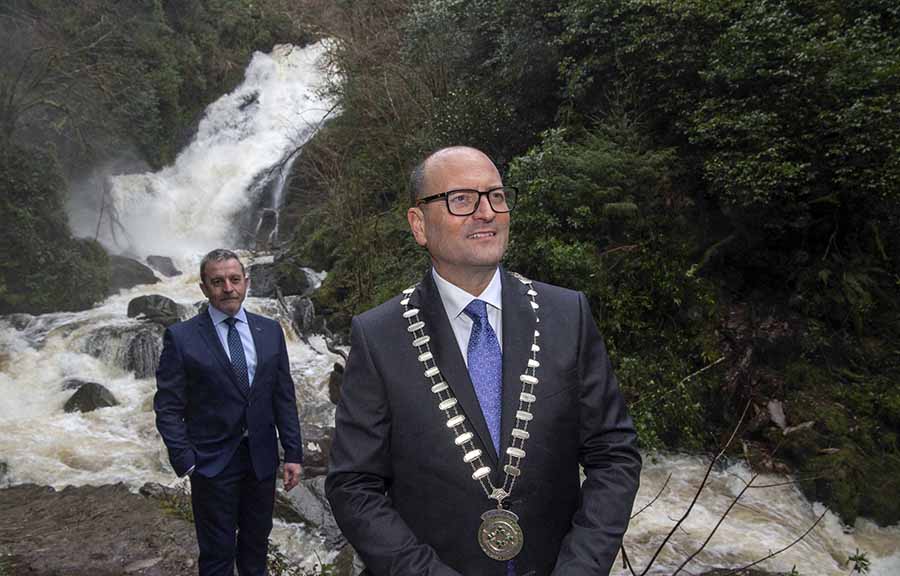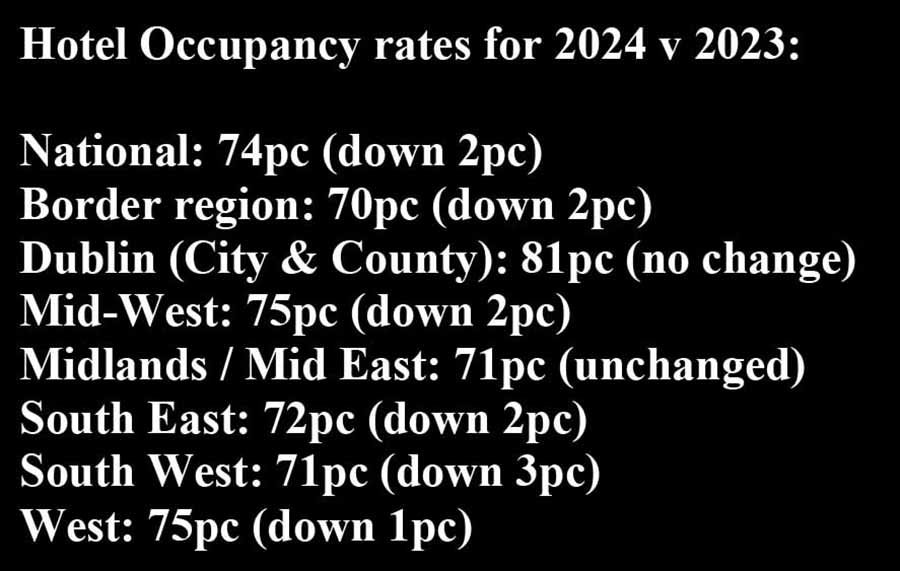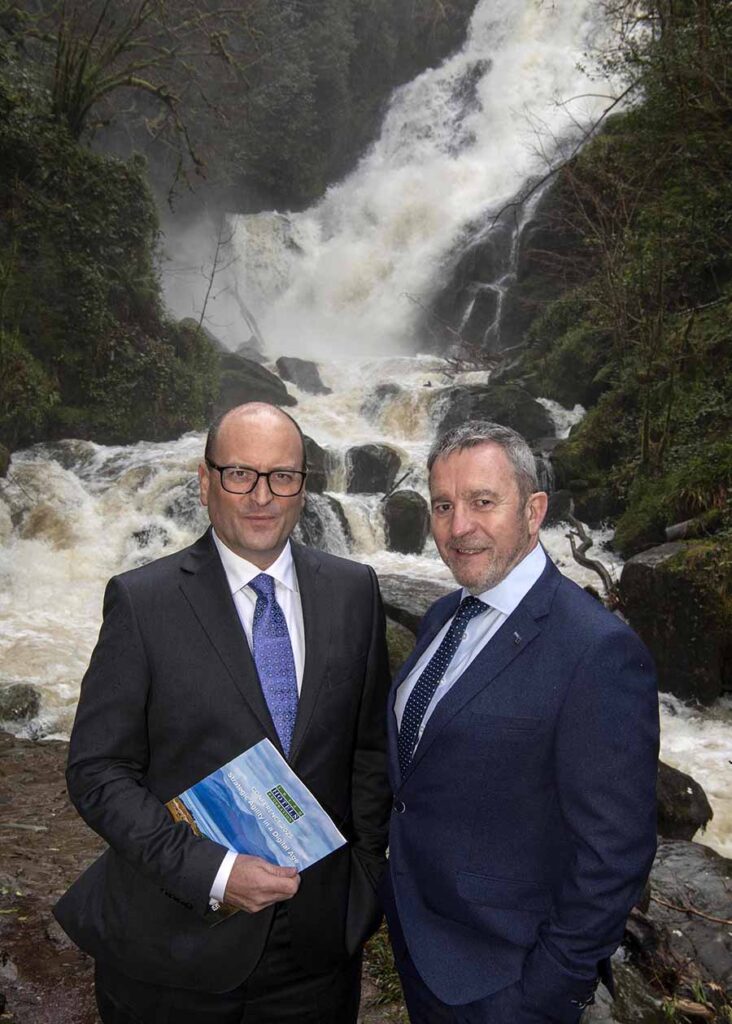
Average hotel room occupancy in Ireland is fell 2pc in 2024 to 74pc, with Dublin’s occupancy at 81pc.
A survey in advance of the IHF AGM and conference found business sentiment has declined, with only 37pc of hoteliers expecting a positive year ahead, compared to 47pc last year and 74pc two years ago.
The Irish Hotels Federation’s 87th Annual Conference is taking place at the Gleneagle Hotel & INEC in Killarney with the AGM today and the main discussion tomorrow Ireland’s hoteliers gather for annual conference at the Gleneagles Hotel in Killarney.
Concerns around rising operational costs and the global economy loom, with 94pc of hoteliers worried about international political dynamics impacting their business.
Mr Magner shared: “Last year was very difficult for many businesses within our sector due to what can only be described as relentless increases in the cost of doing business. This has been a persistent challenge for hotels and the wider hospitality industry since 2022 with no let-up in sight. The situation has been compounded by the decision to increase the rate of hospitality VAT, which has hit food service businesses particularly hard. It is therefore very welcome that the Government has committed to revisiting the VAT issue as part of the budgetary process.”
“The Government, in partnership with the industry, has a pivotal role to play in creating a more positive business environment for enterprises throughout our sector,” said Mr Magner. “There is a lot more that the Government can do to assist businesses in labour intensive industries such as our own. The strong focus on tourism within the Programme for Government is of course very welcome and a vital first step to putting Irish tourism and hospitality on a firmer footing.”
“Having recently met with Minister Peter Burke to discuss the priorities for the development of our sector, we are more optimistic about the immediate and longer-term prospects for our industry. In particular, we believe that the recent repositioning of tourism within the reconfigured Department of Enterprise will facilitate a more joined-up and coherent approach to best support businesses within our sector. It will also help ensure a greater focus on creating the optimum conditions for business viability with our wider tourism industry – a vital part of the economy supporting some 270,000 livelihoods.”






